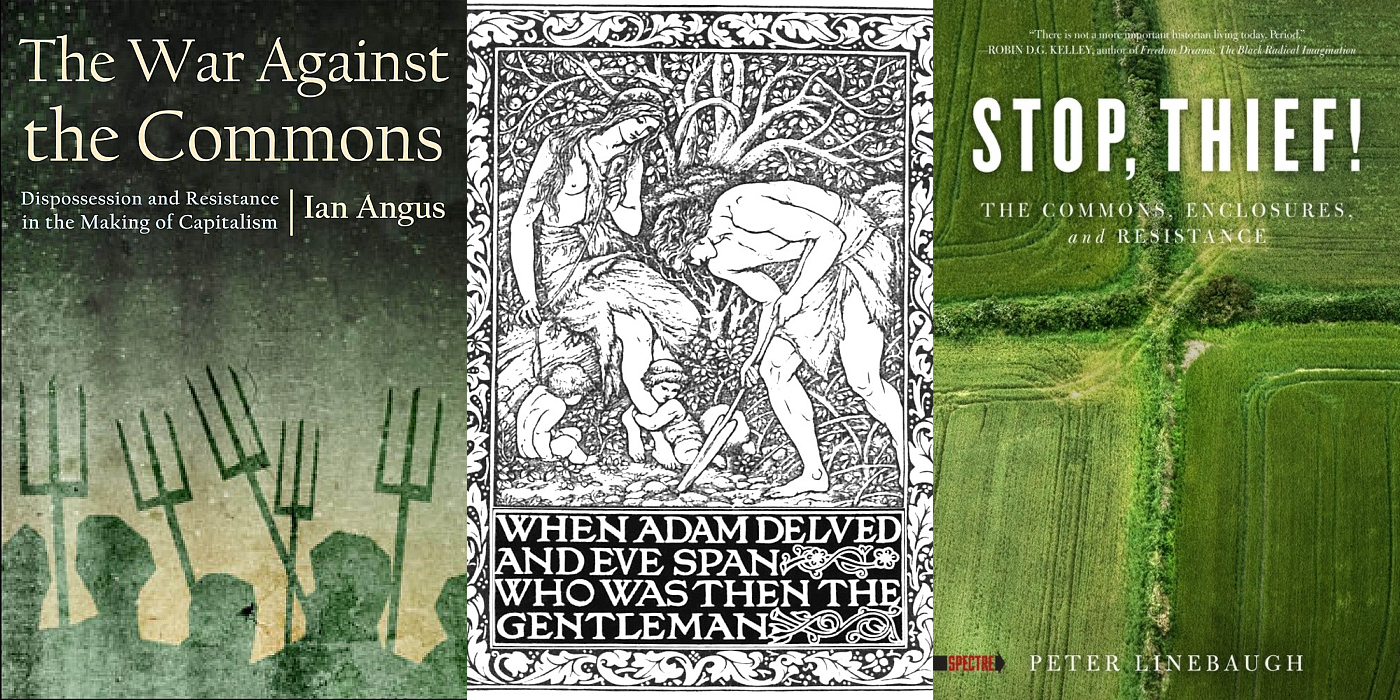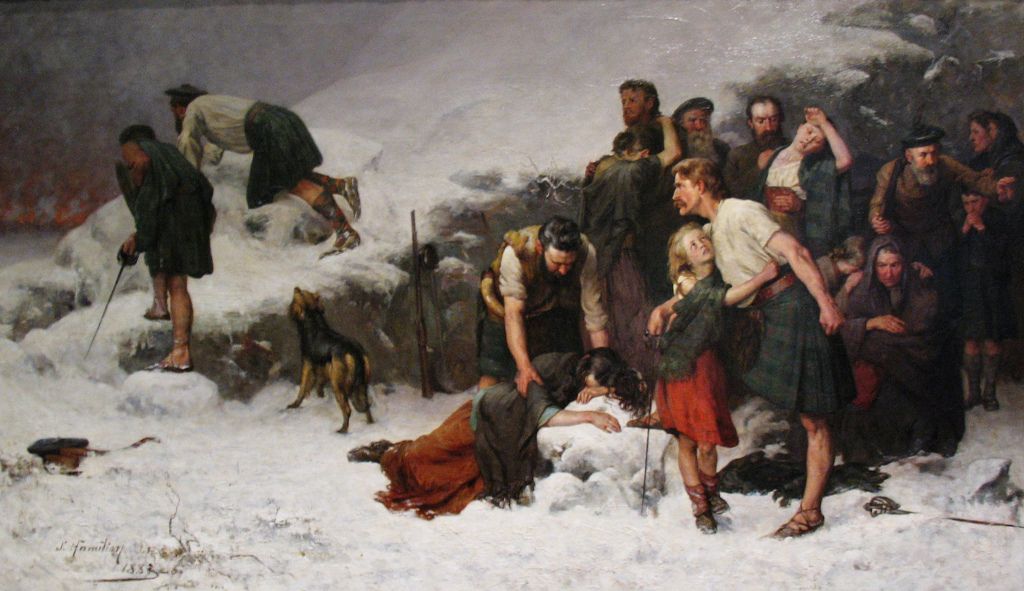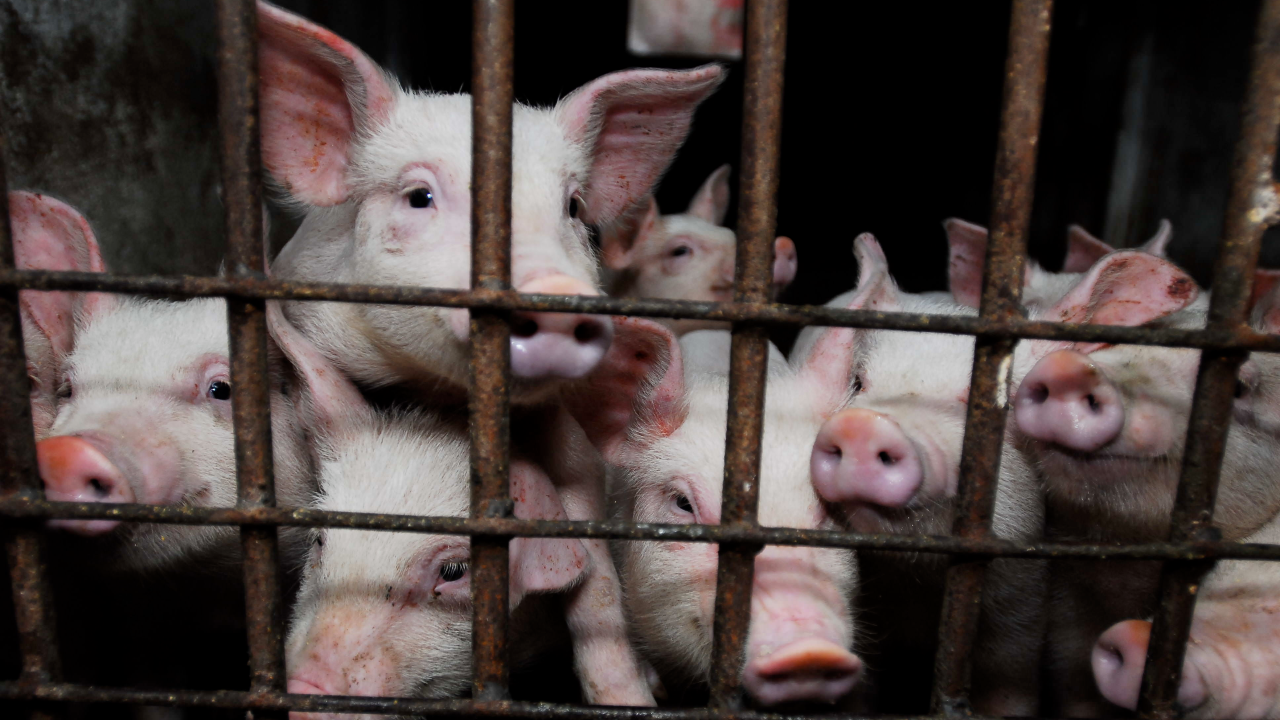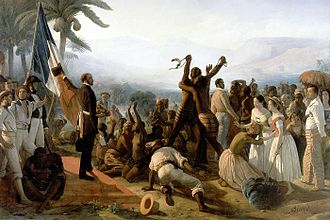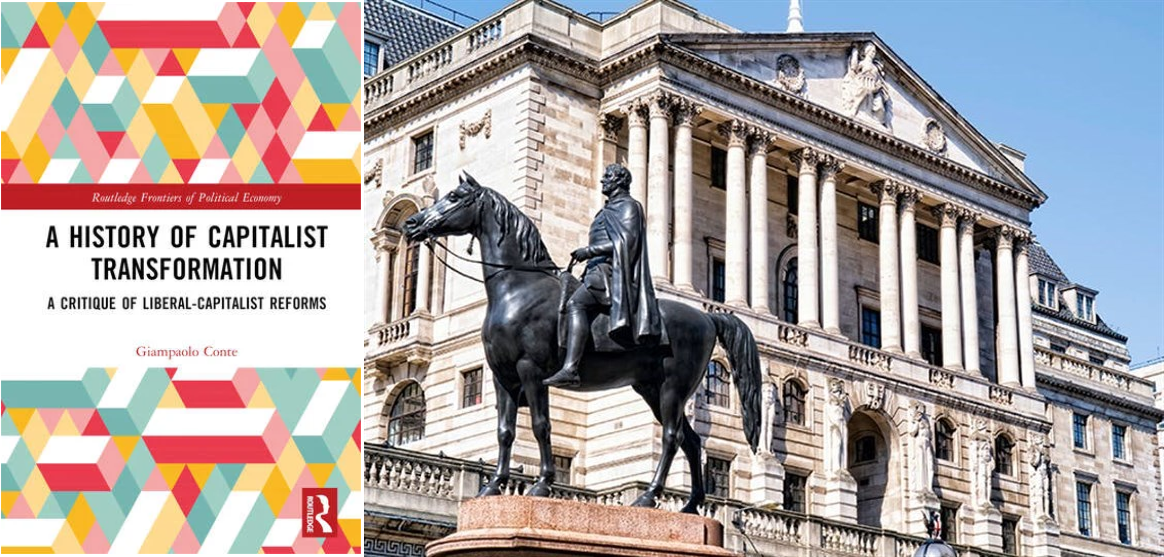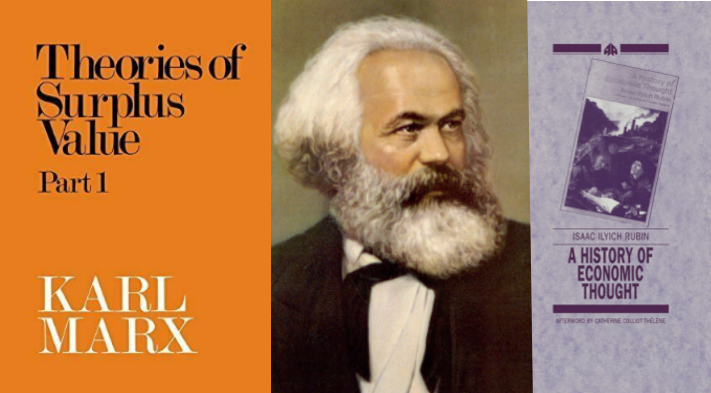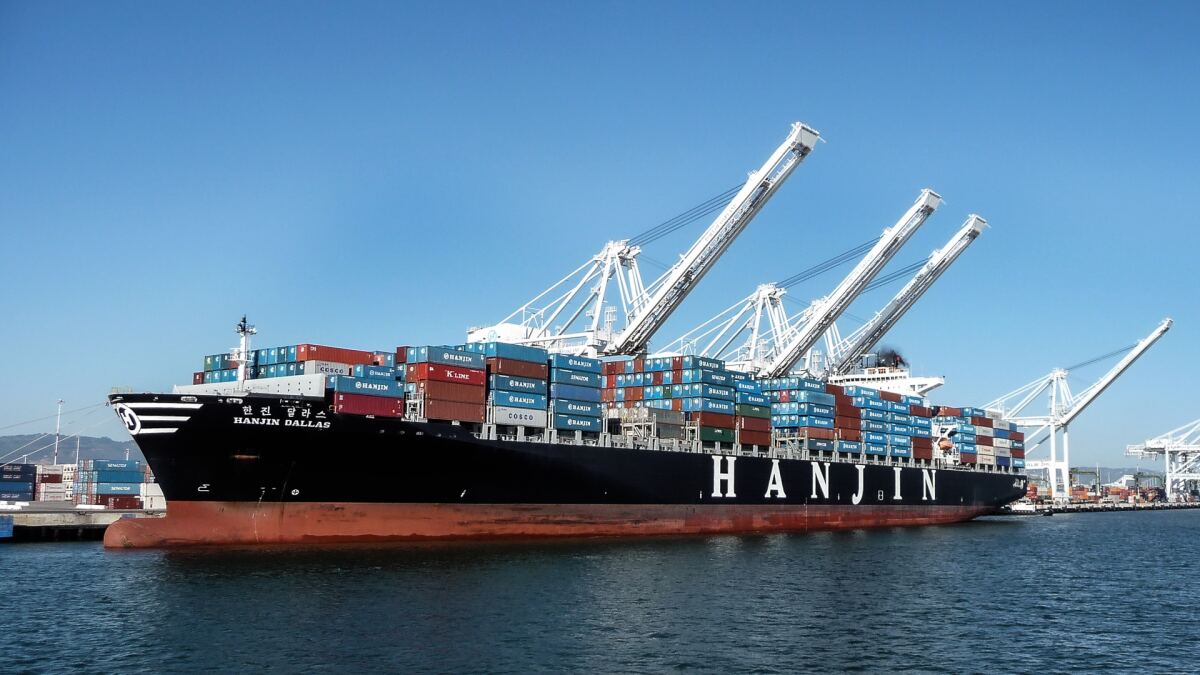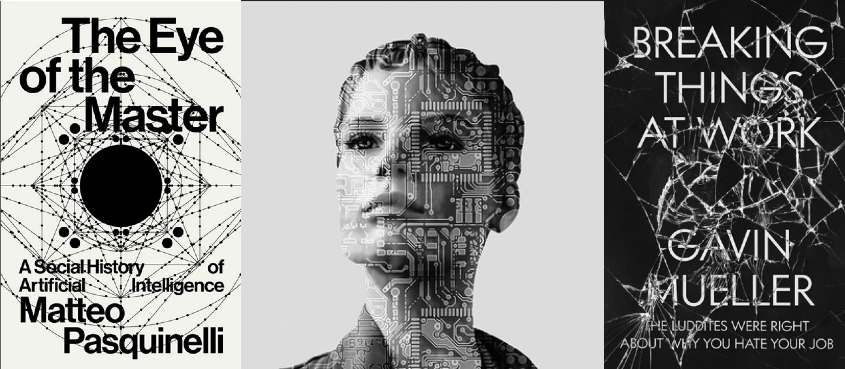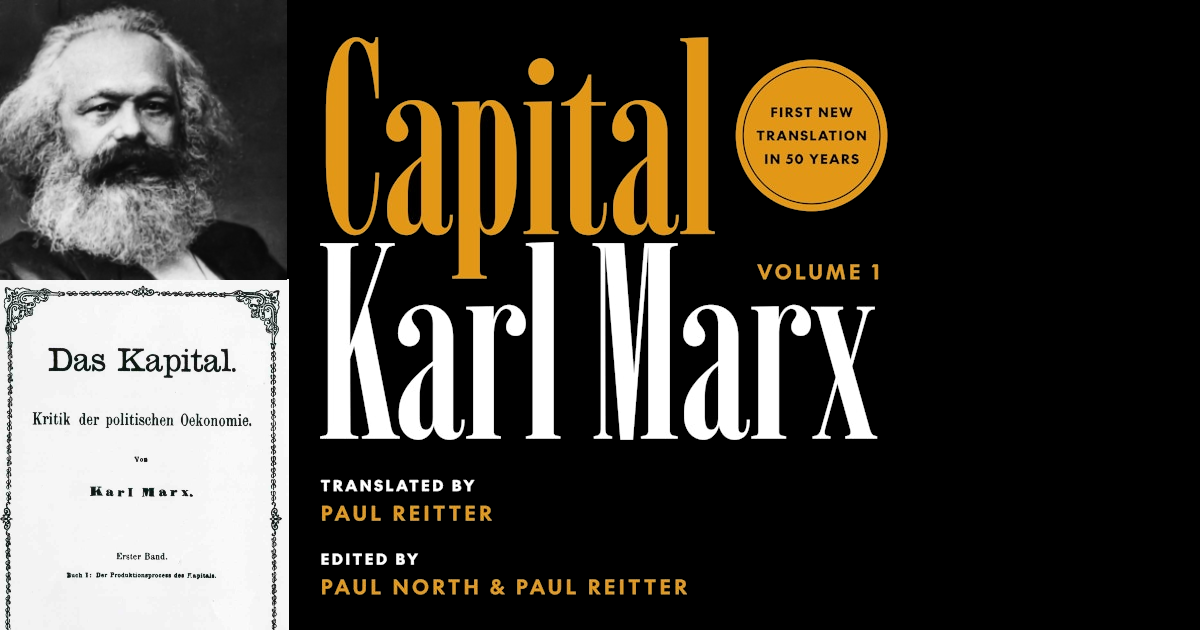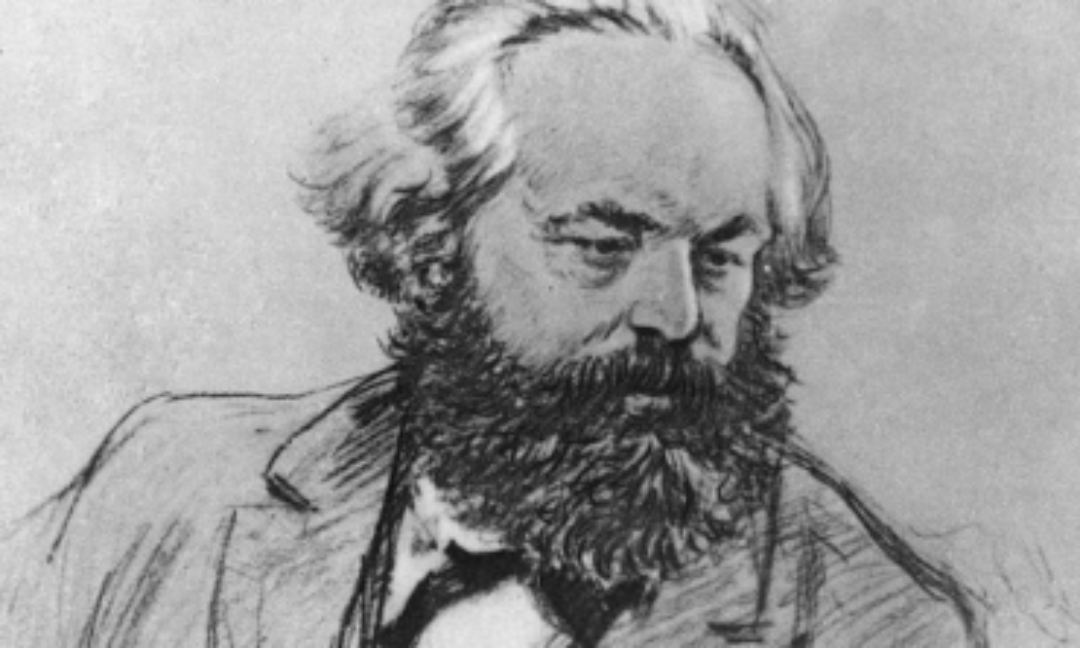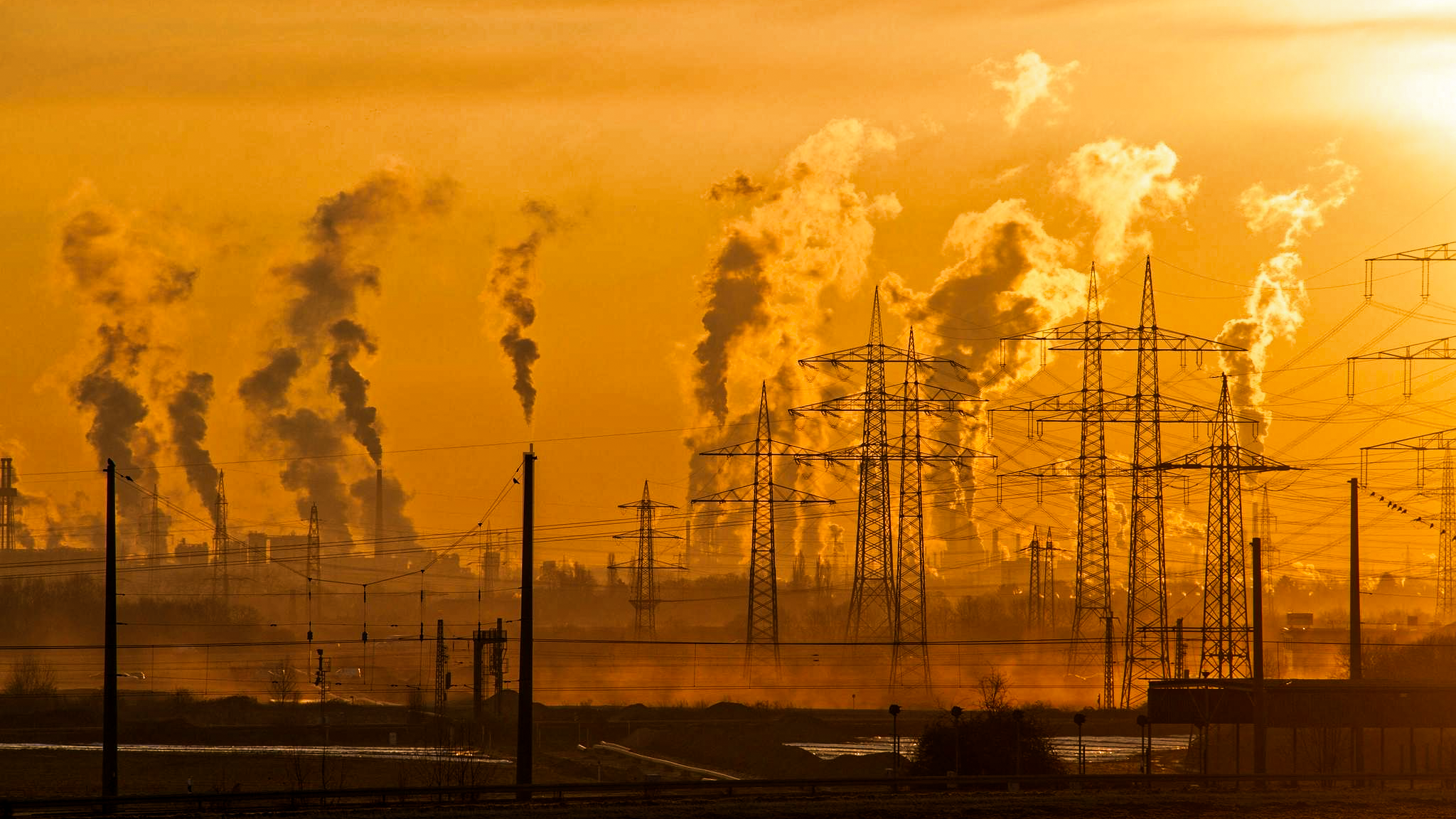Accumulation of Capital
Commons, Commoning, Communism
Online: Zoom link will be provided to registered participantsBefore the advent of capitalism, much of humanity produced their immediate livelihoods on lands and with tools to which they either had rights of use or held as individual property. All that came to a violent end with what Marx preferred to call the "original expropriation" (often misleadingly termed "primitive accumulation"). This reading group will explore the historical roots and persistence of such crimes and the resistance they evoke by reading together Ian Angus's recently published The War Against the Commons, Peter Linebaugh's Stop Thief! and related texts.
Commons, Commoning, Communism
Online: Zoom link will be provided to registered participantsBefore the advent of capitalism, much of humanity produced their immediate livelihoods on lands and with tools to which they either had rights of use or held as individual property. All that came to a violent end with what Marx preferred to call the "original expropriation" (often misleadingly termed "primitive accumulation"). This reading group will explore the historical roots and persistence of such crimes and the resistance they evoke by reading together Ian Angus's recently published The War Against the Commons, Peter Linebaugh's Stop Thief! and related texts.
Blood and Fire: The Violent Origins of Capitalism
Online: Zoom link will be provided to registered participantsJoin the MEP's Capital Study Group in a four-week study of the concluding section of volume I of Marx's Capital, which discloses the widespread violence and dispossession - in both Europe and colonized areas - that accompanied the emergence of capitalism.
The Fall and Rise of American Finance
The People's Forum 320 West 37th Street, New York, NY, United StatesIn-person event at The People's Forum in NYC featuring Stephen Maher and Scott Aquanno, authors of 'The Fall and Rise of American Finance: From J.P. Morgan to Blackrock.' They insist that financialization has not implied the hollowing out of the "real" economy, the decline of capitalism, or the retreat of the state. Rather, it has served to intensify competitive discipline to maximize profits and the exploitation of labor occurred with the support of an increasingly authoritarian state.
Animals, Capitalism, Marxism: A Conversation
Online: Zoom link will be provided to registered participantsDinesh Joseph Wadiwel and Alex Blanchette explore the potential and limits of Marxist theory for addressing the roles and fates of nonhuman animals, as well as ways to connect anticapitalist struggles to animal liberation and environmental justice. Wadiwel is the author of Animals and Capital and Blanchette is the author of Porkopolis: American Animality, Standardized Life, and the Factory Farm.
David McNally: Marx and Colonialism
Recording available on YouTubeDavid McNally joins our 10th anniversary celebration of the MEP with a keynote talk on "Marx and Colonialism: The End of Capital and the Beginning of a Journey."
Book Talk: On the History of Capitalist ‘Reforms’
Recording available on YouTubeGiampaolo Conte presents 'A History of Capitalist Transformation: A Critique of Liberal-Capitalist Reforms', just published by Routledge. Conte's historical research demonstrates that the chief purpose of such reforms has been to integrate semi-peripheral states into the capitalist world-economy.
Studies in Marx’s Capital
Online: Zoom link will be provided to registered participantsFollowing up on the MEP's long-running study group on Karl Marx's Grundrisse, we have been reading closely and discussing Marx's 'Theories of Surplus Value' and related works. At present we are completing a study of capitalist landholding and ground rent. Future readings may include Soren Mau's 'Mute Compulsion' and Beverley Best's 'The Automatic Fetish.'
The Circulation of Capital: Volume II of Marx’s Capital
Online: Zoom link will be provided to registered participantsA weekly study group covering Marx's Capital, Volume II, The Process of Circulation of Capital. In this volume, Marx addresses the question: How can the reproduction of society as a whole take place, if there is no conscious social planning that ensures that all needs are met, in the necessary proportions, such that life can persist and the capitalist relations of production be sustained? We discover the answer, but we also learn of new contradictions and sources of crisis inherent to capitalist society.
A Prime Competitor: Understanding Amazon’s Market Power
Recording available on YouTubeStephen Maher and Scott Aquanno present an innovative analysis of Amazon's market power, drawing on major themes from Marx's Capital, volume 2. In a recent contribution published by Canada's Socialist Project, they challenge understandings of "monopoly" common in mainstream economics as well as among sections of the left.
AI versus Labor: Luddism and Beyond
Online: Zoom link will be provided to registered participants8 weekly sessions starting Oct 1. Is Artificial Intelligence (AI, sic) really the dire threat to the future of humanity as even some of its proponents claim, or is it a more mundane and familiar threat to working people who face loss of their livelihoods and/or further speed-up and alienation? The entire history of industrial capitalism is punctuated by recurring waves of automation to reduce labor costs and turnover time, each time provoking strong resistance by the affected workforce. This reading group will probe the history both of AI and computer technology specifically and of working-class resistance to capitalist automation in general.
Translating ‘Capital’ for the 21st Century
Recording available on YouTubeThe appearance of a new English-language edition of Marx's Capital, Volume I, translated and edited by Paul Reitter and Paul North, has been a momentous occasion. Join a conversation with Reitter, North, and noted Marx scholar Michael Heinrich on the challenges of translating Marx for 21st century readers, the weaknesses and strengths of earlier translations, and the ways the new edition can help us understand Marx's analyses of capital and value.
Marx Miniseries: The ‘Resultate’
Online: Zoom link will be provided to registered participantsThe MEP's Capital Studies Group presents a miniseries on the chapter Marx omitted from published editions of Capital. Titled "Results of the Immediate Process of Production" and often referred to by the German 'Resultate', this long chapter can be read as a bridge between volumes 1 and 2 of Capital.
Reading Capital in an Age of Climate Change
Recording available on YouTubeMatt Huber highlights the relevance to the climate crisis of key concepts from Marx's 'Capital' such as value, the hidden abode of production, surplus-value, the accumulation of capital, primitive accumulation, and the expropriation of the expropriators.
Trump, the State, and Global Capital
Recording available on YouTubeLooking at the early weeks of the Trump regime through a Marxists lens presents a major challenge, but who better to meet it than Steve Maher and Clara Mattei, whose historical analyses of finance capital and the capitalist state have garnered well-deserved praise. Join us as we engage Steve and Clara in an open-ended conversation aimed at bringing some clarity to the burgeoning chaos that is shaking up U.S. and global capitalism and the imperialist state system.

